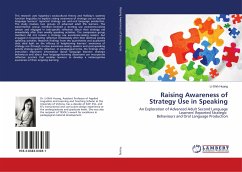To provide for social, emotional, and behavioural needs in inclusive classroom, teachers may adopt a therapeutic role. This research examines whether participants indeed adopt a therapeutic role, their beliefs about student-teacher relationships, whether they provide interventions in personal issues, and instructed social, emotional, and behaviour skills. Findings show that teachers adopt an academic role as well as a therapeutic role, believe student-teacher relationships are important, are approached about personal issues, and instruct social, emotional, and behavioural skills. Talking and listening are commonly used to provide support, typically exclusive of formal curricular goals. The challenges in providing front-line support issues that may be shared within an established student-teacher relationship are considered. Support in turn for teachers who choose to provide support for personal issues in the classroom within a therapeutic role are suggested, including recommendations for support and referral related to specific social, emotional, or behavioural scenarios that may arise in the school community.
Bitte wählen Sie Ihr Anliegen aus.
Rechnungen
Retourenschein anfordern
Bestellstatus
Storno








